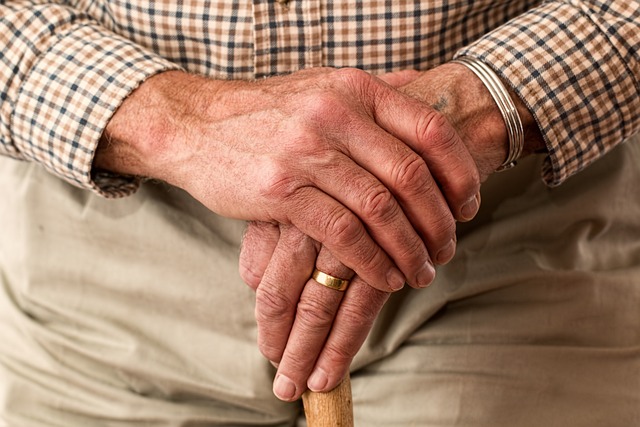Elderly companion services are vital for enhancing mealtime experiences for seniors by addressing more than just nutritional needs. These tailored services provide comprehensive support to accommodate physical limitations, cognitive decline, and the emotional challenges of solitude. They assist with planning, grocery shopping, and cooking, thereby promoting independence, well-being, and a sense of community during meals. These companion services are particularly beneficial for mental health, turning mealtime into a social event. They also cater to specific dietary requirements, crucial for managing conditions like diabetes or heart disease, ensuring balanced meals that maintain a healthy lifestyle and reduce the risk of malnutrition. Additionally, these services offer personalized meal planning in line with dietary restrictions, empowering seniors to live independently with dignity while sustaining their health. By integrating companionship into meal preparation, these services not only support the nutritional needs but also foster social engagement, community building, and cultural heritage sharing, significantly improving the quality of life for elderly individuals through elderly companion services.
Navigating the golden years often necessitates support in daily activities, including meal preparation. This article explores the transformative impact of elderly companion services on enhancing nutritional intake and fostering social engagement for seniors. We delve into effective strategies for safe and tailored meal planning, highlighting how these services not only cater to dietary needs but also provide a platform for companionship and shared dining experiences. Through these programs, seniors can enjoy the dual benefits of nourishment and camaraderie, enriching their quality of life. Join us as we examine the significance of elderly companion services in promoting both health and connection at mealtimes.
- The Role of Elderly Companion Services in Enhancing Meal Preparation for Seniors
- Strategies for Safe and Nutritious Meal Planning Tailored for the Elderly
- Fostering Social Connection Through Meal Sharing in Elderly Companion Programs
The Role of Elderly Companion Services in Enhancing Meal Preparation for Seniors

Elderly companion services play a pivotal role in enhancing meal preparation for seniors, offering more than just nutritional support. These services are designed to address the challenges faced by elderly individuals who may struggle with grocery shopping, food preparation, or cooking due to physical limitations, cognitive decline, or simply the lack of motivation that can accompany living alone. With a focus on maintaining independence and promoting well-being, these companion services often include assistance with meal planning, grocery acquisition, and even the preparation and cooking process itself. This hands-on approach ensures not only that seniors receive balanced and nutritious meals but also that they engage in social interactions during the mealtime, which can be beneficial for their mental health and emotional well-being. The presence of a compassionate and supportive companion can make all the difference, transforming a solitary meal into a meaningful social activity, thereby enriching the overall quality of life for the elderly individual.
Moreover, these services are tailored to meet the specific dietary needs and preferences of seniors, which is crucial for managing health conditions such as diabetes or heart disease. By providing personalized meal plans and adhering to any prescribed dietary restrictions, companion services help seniors maintain a healthy lifestyle, reduce the risk of malnutrition, and manage chronic health issues effectively. The role of these services in promoting autonomy and dignity for seniors is immeasurable, as they enable individuals to continue living independently in their own homes while ensuring that they have access to the nutrients and sustenance necessary for a healthy life.
Strategies for Safe and Nutritious Meal Planning Tailored for the Elderly

When considering meal preparation for the elderly, safety and nutrition are paramount. A well-balanced diet can significantly impact an older adult’s health, fostering both physical and mental well-being. Strategies for safe and nutritious meal planning begin with understanding individual dietary needs, which may include adjustments for dental issues, potential digestive sensitivities, or chronic health conditions. Elderly companion services can play a crucial role in this process, as they often provide assistance with grocery shopping, ensuring the selection of fresh produce and nutritious ingredients that align with dietary guidelines. These services also offer an added benefit of companionship during meal preparation, which can be both uplifting and therapeutic for seniors who may feel isolated or less mobile.
Preparing meals in advance is another effective strategy to ensure the elderly consume well-balanced, wholesome foods. Companion services can help plan and organize meal schedules, preparing dishes that are easy to reheat without compromising nutritional value. Additionally, these services often tailor meals to accommodate specific dietary restrictions or preferences. Food safety is also a critical aspect of meal planning for the elderly, and companion services can assist with proper food storage techniques and temperature monitoring during cooking and reheating processes. By integrating elder care companion services into meal planning, seniors can maintain a healthy lifestyle with the support and companionship that enhance their daily living experience.
Fostering Social Connection Through Meal Sharing in Elderly Companion Programs

Elderly companion services often extend beyond mere companionship, offering a multifaceted approach to supporting seniors. A significant aspect of these services is fostering social connections through shared meal experiences. These programs are designed to not only provide nutritious meals but also to create a space for conversation and community among participants. By encouraging elders to engage in meal preparation and sharing with others, these services promote a sense of belonging and purpose. The act of cooking together can be a bonding activity, allowing individuals to share stories, laughter, and life experiences. This not only enriches the social lives of seniors but also contributes to their mental and emotional well-being. Moreover, meal sharing within elderly companion services is an opportunity for older adults to impart culinary skills and family recipes, preserving cultural heritage and traditions while fostering intergenerational connections. These programs offer a platform where companions can appreciate the wisdom and experiences of elders, and where seniors can find joy in passing down culinary wisdom, thus enhancing the overall quality of life for those involved.
In conclusion, the integration of elderly companion services plays a pivotal role in bolstering meal preparation for seniors, ensuring not only their nutritional well-being but also their social engagement. By adopting tailored strategies for safe and nutritious meal planning, these services address the unique challenges faced by the elderly. The act of sharing meals becomes a conduit for fostering meaningful connections and community, enhancing the overall quality of life. For seniors who may be facing the complexities of meal preparation alone, companion services offer a vital lifeline, blending culinary care with companionship. Thus, these programs stand as a testament to the importance of holistic support systems for our aging population, ensuring their independence and social interaction are both nourished.




